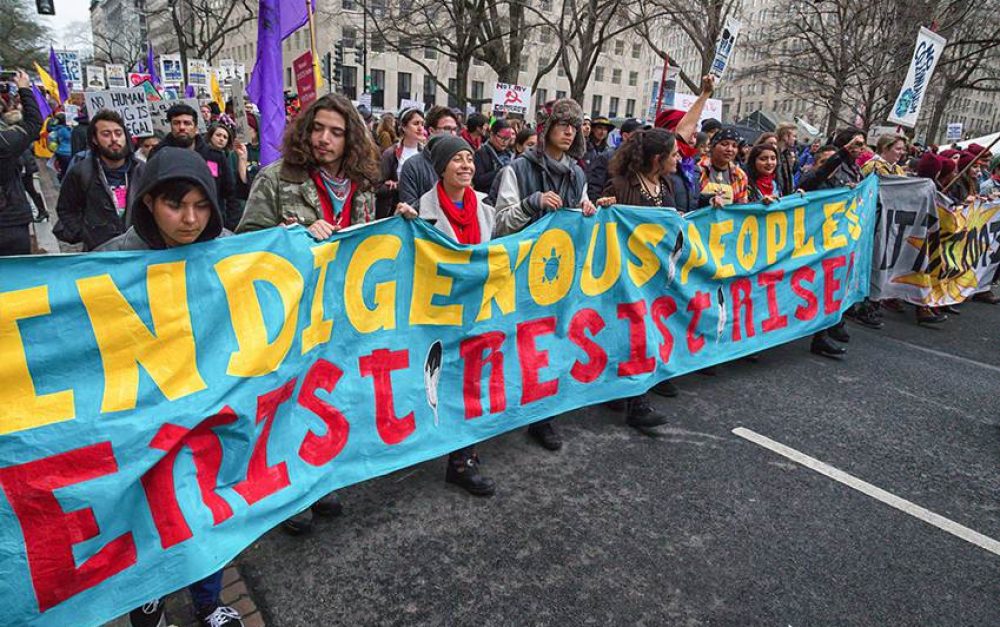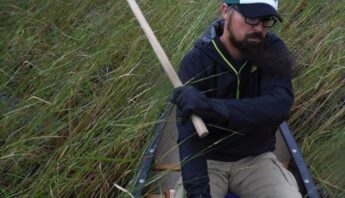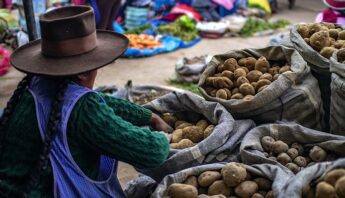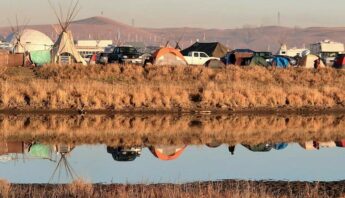August 9 is the U.N. International Day of the World’s Indigenous Peoples. Today, PAN stands with the estimated 370 million Indigenous peoples around the world in their struggles to gain justice and obtain full cultural, economic, social and political rights.
August 9 is the U.N. International Day of the World’s Indigenous Peoples. Today, PAN stands with the estimated 370 million Indigenous peoples around the world in their struggles to gain justice and obtain full cultural, economic, social and political rights.
The U.N. Declaration on the Rights of Indigenous Peoples resonates strongly with the work PAN’s Indigenous partners and allies are doing in their communities. While you can read the entire Declaration here, these are some of the rights included:
- Indigenous peoples shall not be forcibly removed from their lands or territories.
- Indigenous peoples have the right to own, use, develop and control the lands, territories and resources that they possess by reason of traditional ownership or other traditional occupation or use, as well as those which they have otherwise acquired.
- Indigenous peoples have the right to the conservation and protection of the environment and the productive capacity of their lands or territories and resources.
A decade after the U.N. Declaration was passed, it is an unfortunate reality that the fundamental rights of many Indigenous communities around the world are still being violated. There are too many examples of peoples’ lands being snatched from them; their environment destroyed by industrial agriculture, by the expansion of industry and deforestation; their livelihoods destroyed by forcible exploitation and capture; and their political and cultural rights trampled upon by corporate actors and the government. And too often, Indigenous leaders — like Berta Caceres from Honduras — are harassed or even murdered while they try to pursue justice for their people.
This is no different in the United States, where the government has an abysmal track record with Native Americans — including the recent Dakota Access Pipeline struggle in which Indigenous peoples’ rights were repeatedly disregarded in the face of corporate greed and state power.
Our collective work is not done.
Spotlight on resistance & solidarity
The powerful forces of resistance and solidarity have given rise to strong Indigenous movements in communities around the world. Globally, these movements aim to reclaim lands, cultural practices and livehoods. While there are countless such campaigns going on worldwide, we at PAN North America have been working with several Indigenous-led groups. We’re honored to be part of their ongoing fights and victories.
In Minnesota, we’ve been partnering with the White Earth Land Recovery Project since 2006, and with Toxic Taters since 2013. Toxic Taters is a grassroots organization led by rural and Native residents of north central Minnesota who are fed up with health-harming pesticide drift from nearby potato fields. It’s a bold campaign taking on two giants of the food system: RD Offutt, the nation’s largest potato grower, and McDonald’s, which makes its fries using these potatoes. Native and non-Native residents in the area have conducted air sampling in and around the area near local potato fields to provide hard data to illustrate the pesticide drift in the region.
In Alaska, we have worked closely over the years with groups such as Alaska Community Action on Toxics (ACAT) and International Indian Treaty Council (IITC), which fight for environmental justice and the rights and sovereignty of Arctic Indigenous peoples. With a community-led approach that prioritizes rights of Indigenous peoples over corporate profits, these groups have won victories for Arctic Indian Peoples against the use of their lands as a dumping ground for the military — and against the contamination of their land and bodies by hazardous pesticides that travel thousands of miles on wind and water currents to contaminate the Arctic region. The work o ACAT and IITC has contributed to the banning of nasty pesticides like endosulfan and lindane, which accumulate in the bodies of those living in the area.
In Hawaiʻi, PAN has been supporting and building alliances with groups that work to restore the traditional rights of Native Hawaiians and those fighting to protect the health and well-being of Native communities. Much of the rich agricultural land on these islands has been co-opted by industry giants, and used as test fields for genetically engineered crops and their accompanying pesticides. Communities are continuing the fight to stop the consistent, year-round exposure to chemicals that are undermining their health, water and soil.
The vibrant Native Hawaiian led movement to revive traditional agricultural practices and reclaim the lands and culture sacred to Native Hawaiians is something that PAN groups from around the world are inspired by, and we are proud to support in whatever way we can.
Looking forward
PAN and our allies are humbled by the courage and resilience of Indigenous groups in the U.S. and elsewhere who are resisting the corporate capture of their lands and resources and fighting for their rights to life, health and livelihood. We stand in solidarity with Native Peoples and pledge to remain allies in these movements.
As a member of the indigenous Tolupán group from Locomapa, Honduras, said:
We aren’t going to give up the struggle to keep our natural resources clean and in the hands of the community. There are those who want easy money by tearing up the land, contaminating the water. We have been here respecting the Earth that gives us our food and we intend to stay here fighting for our right to feed ourselves.”
Photo: Mobilus In Mobili | Flickr







